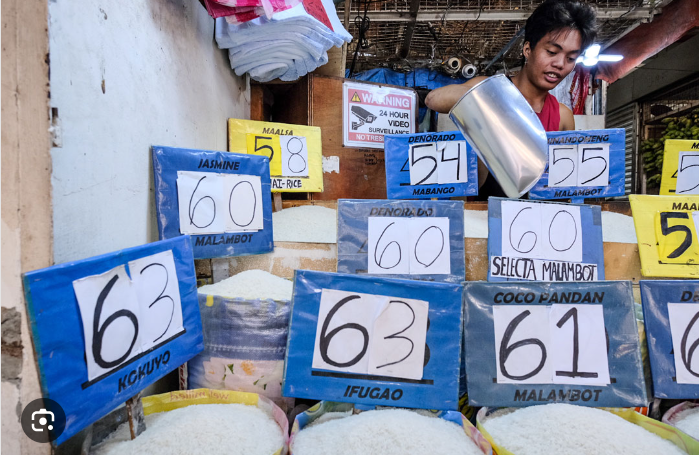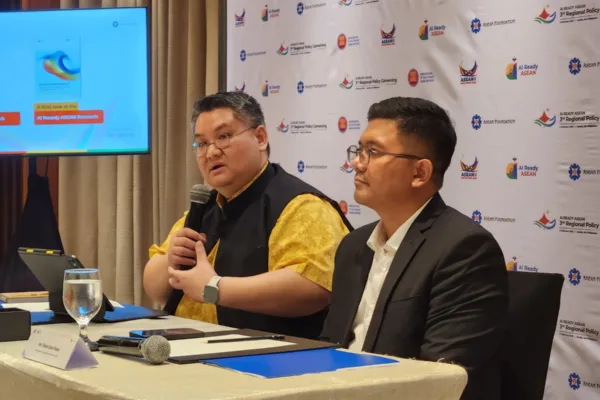The Bangko Sentral ng Pilipinas (BSP) has projected inflation for October 2024 to fall between 2.0% and 2.8%, a range that aligns with its goal of stabilizing the country’s economy amid global volatility.

While food prices, petroleum costs, and peso depreciation have added upward pressure to inflation, lower prices for rice, meat, and electricity offer some relief. In a media advisory, the Monetary Board said it aims to manage inflation through measured interventions, maintaining a balanced economic environment that promotes sustainable growth and employment.
Despite the BSP’s optimistic outlook, the delicate balance of the Philippine economy underscores the vital role of fintech in enhancing financial resilience. With the digital transformation of financial services on the rise, financial technology companies are positioned to mitigate the effects of inflation and improve the accessibility and affordability of financial products.
BSP: Rising food and fuel prices to challenge households

The October inflation forecast reflects the increased prices of vegetables, fruits, and fish. As food comprises a significant portion of household expenses, this sector’s inflation directly affects consumers’ purchasing power.
Additionally, domestic petroleum prices have surged, affecting the cost of transportation and production across various industries. The recent peso depreciation also compounds the situation, raising import costs and impacting small and medium-sized enterprises (SMEs) that rely on imported materials.
However, lower rice and meat prices along with reduced electricity rates provide some cushioning against inflation. Rice, a staple food, remains a critical factor in the overall inflation rate, and any fluctuation in its price has a broad impact on consumers and the economy.
BSP’s measured approach and the role of fintech
The BSP’s Monetary Board, through its gradual adjustments to monetary policy, seeks to ensure that price stability remains a priority, aligning with the bank’s long-term vision of sustainable growth. While traditional banking remains central to this mission, fintech solutions increasingly play a complementary role, offering alternative methods to bolster economic resilience.

The Philippine fintech sector has expanded rapidly in recent years, driven by initiatives to improve financial inclusion and increase digital adoption. Platforms such as GCash, PayMaya, and UnionDigital Bank now serve millions of Filipinos who previously had limited access to traditional banking services. By providing affordable and accessible financial products, these platforms enable users to manage their finances more efficiently, even in inflationary periods.
For SMEs, fintech platforms facilitate access to credit and micro-loans, allowing them to sustain operations despite higher input costs driven by inflation. With digital lending options available, many small businesses can now manage cash flow more effectively, thereby avoiding disruptions in operations.
Fintech innovations such as e-wallets, peer-to-peer lending platforms, and digital payment services have gained significant traction in the Philippines, especially as inflation continues to influence consumer behavior. These tools can offer relief to individuals and SMEs by providing flexible, affordable financial solutions in times of economic uncertainty.
Another essential fintech development is the rise of cryptocurrency and blockchain applications, which are becoming popular among consumers looking to diversify their investments. As inflation affects the value of the peso, digital assets can offer an alternative for wealth preservation. The introduction of peso-backed stablecoins, such as the recently launched $PUSO, provides an additional option for Filipinos to hedge against inflation and currency depreciation.
BSP and fintech collaboration to strengthen economic stability
As the fintech sector grows, the BSP has been proactive in developing frameworks to foster a safe, regulated environment for digital financial services. The central bank’s Digital Payments Transformation Roadmap aims to digitize 50% of retail payments by the end of 2024, a goal that aligns with the ongoing efforts to bolster financial resilience.
In a recent media advisory, the BSP announced that the Philippines has successfully met its ambitious target of digitalizing half of its retail payments and is now on the right track towards achieving its goal of being a cashless economy.
As of 2023, an impressive 52.8 per cent of monthly retail transactions are now being conducted digitally, marking a significant milestone in the country’s journey towards a cashless economy. “Digital finance solutions have become essential tools for resilience, especially for the underserved sectors of the economy,” the BSP further stated. “As inflationary pressures continue, these platforms provide a bridge for individuals and businesses to meet their financial needs effectively.”
The BSP’s October inflation forecast underscores the need for vigilant economic management, but fintech innovations present a growing avenue to support the economy in challenging times. By offering accessible financial solutions, promoting investment alternatives, and supporting SMEs, the fintech sector strengthens the foundation of economic resilience in the Philippines.
With inflation pressures expected to remain a factor in the near term, the collaborative efforts between the BSP and the fintech industry will likely play a crucial role in maintaining the economy’s stability and ensuring that all Filipinos have the tools needed to weather the financial storm.
Through careful management and the increasing integration of fintech solutions, the Philippines can look forward to a more resilient, inclusive economic future.







